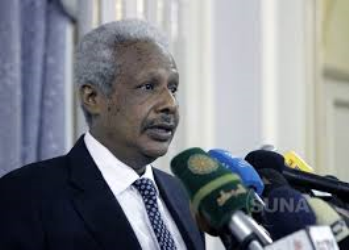Sudan to continue phasing out subsidies
August 23, 2014 (KHARTOUM) – Sudanese finance minister Badr al-Din Mahmoud said on Saturday that his government will continue lifting subsidies on consumer goods, stressing that the 2015-2019 economic programme is based on controlled economic liberalisation policy.

Mahmoud, who addressed a conference of the ruling National Congress Party (NCP) economic sector stressed that the quintet program underscored the need to carry out tax and customs reforms in order to increase revenues by focusing on direct taxes.
Earlier this month, the International Monetary Fund (IMF) published a memorandum issued by the Sudanese government in which it vowed to carry out several economic measures including lifting of government subsidies on energy sector besides revising customs exemptions and the tax code.
The minister said that the quintet program aims at achieving balanced development through redistribution of development projects among states and equitable distribution of national income among Sudanese people besides limiting government expenditure, stressing the need to increase resources and boost banks’ efficiency, investment and production.
He added that they are currently focusing on curbing inflation and attracting national and foreign investments besides stabilising the exchange rate, noting that the program seeks to increase agricultural, industrial, oil and mineral production, as well as transformational industries.
A bulletin issued by Sudan’s Central Bureau of Statistics (CBS) earlier this month showed that the monthly inflation rate edged upwards in the month of July to 46.8% from 45.3% in June amid sharp price increases o goods and services.
The government official further said the quintet program seeks to promote the private sector so that along with the public sector it could participate in achieving economic development.
He called for galvanising efforts to support the weak social sectors through coordination with partners such as the Zakat (alms) Chamber to fight against poverty and unemployment and achieve the desired social stability, saying the current stage requires promotion of health, education and water services.
Mahmoud also pointed to the negative impact caused by South Sudan’s secession and the international economic crisis on the Sudanese economy.
Sudan lost 75% of its oil reserves after the southern part of the country became an independent nation in July 2011, denying the north billions of dollars in revenues. Oil revenue constituted more than half of Sudan’s revenue and 90% of its exports.
The Sudanese pound lost 100% of its value since South Sudan’s secession. One US dollar is now trading at 9.4 Sudanese pounds (SDG) in the black market. The official exchange rate is around 5.7 pounds to the dollar.
(ST)
